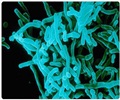Dr. Andrew Wakefield, who triggered panic waves across UK over the MMR vaccine by linking it to autism, is now in danger of being struck off the medical register.
Dr. Andrew Wakefield, who triggered panic waves across the UK over the MMR vaccine by linking it to autism, is now in danger of being struck off the medical register.
The country’s General Medical Council ruled Thursday that Dr.Wakefield had acted dishonestly and irresponsibly and provided misleading data in his study on the MMR vaccine that was published by the Lancet medical journal in 1998.A panel of three GPs and two lay members has sat for a total of 187 days since July 2007 when the hearing was first launched. They are considering a charge sheet that runs to 95 pages – 34 of them are devoted to Dr Wakefield alone.
In the Lancet paper Dr Wakefield, along with Prof John Walker-Smith, Prof Simon Murch and 10 other researchers proposed a new type of bowl disorder in children and a link between it and autism. They did not directly identify MMR as a cause. Andrew Wakefield later made a link between the vaccine and the disorder.
The other 10 researchers have long-since disowned the findings of the paper and Prof Murch has since maintained that MMR is safe.
The GMC hearing focused on whether the research was conducted in an ethical manner – and whether the paper was an honest reflection of that research. The three researchers deny any wrongdoing.
Nearly all of the serious allegations the GMC have been considering were raised by the Sunday Times journalist Brian Deer.
Advertisement
The GMC has also been considering allegations that the researchers carried out procedures on 12 autistic children recruited for the study that were not in accordance with the ethical approval given to them by the Royal Free Hospital where the initial research was carried out. Also that the children studied did not properly qualify to be included in the study and that they carried out procedures that were not suitable given the decision of the ethical review board.
Advertisement
Wakefield was also being investigated for taking blood samples for the research from children at his son's birthday party – and offering them £5 in return. He was later filmed describing this at a conference.
The charges against Dr Wakefield go further. It was alleged he was in a position to profit from his research into MMR because he was employed as an expert witness against the safety of the vaccine by a US law firm.
It was also alleged that he had taken out a patent on a single-shot vaccine against measles which he advocated as an alternative to MMR after his paper in the Lancet was published.
After the Medical Council delivered its ruling, Dr Wakefield made a brief statement outside the GMC headquarters, saying he was "extremely disappointed."
"The allegations against me and against my colleagues are both unfounded and unjust, and I invite anyone to examine the contents these proceedings and come to their own conclusions," he said.
A small group of Dr Wakefield's supporters cheered as he spoke and he thanked them for their "extraordinary commitment and loyalty."
"I want to reassure them that the science will continue in earnest," he added.
It has been the longest hearing ever held by the General Medical Council, into one of the most serious public health scares of modern times.
The MMR scare left a serious legacy. The number of children vaccinated with MMR began to fall as soon as media reports about Dr Wakefield's 1998 study emerged. In 1997, 92 per cent of children in England and Wales got the jab. By 2004 it was 80 per cent.
Last year only 85 per cent of children have had the vaccine. While this may sound like a lot, because measles is so infectious vaccination rates of 95 per cent are recommended to prevent spread of the disease.
And the impact on the number of measles cases has been stark. In 1998 there were just 56 cases in England and Wales. In 2008 there were 1,370.
While measles can be a mild disease for many children it can lead to serious brain swelling which can be fatal or result in deafness or subsequent degenerative brain diseases.
Wakefield has since described, in several journals including the Journal of Clinical Immunology, what he terms a new disease, autistic enterocolitis, because symptoms are unlike other childhood intestinal disorders. Critics contend that Wakefield has not shown any evidence that this disease exists, and that autistic enterocolitis is not recognized by the scientific community. He is currently an Executive Director at the Thoughtful House, a centre for autistic children in Texas. The GMC will now consider whether the doctor's behaviour constitutes professional misconduct and, if so, what sanction to impose on him. It will be some months before such a decision is reached, reports say.
Source-Medindia
GPL













